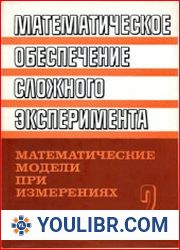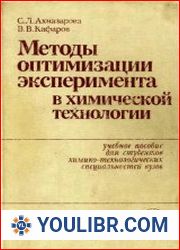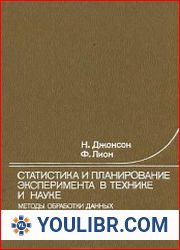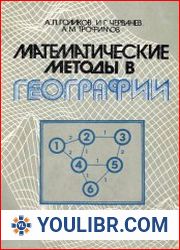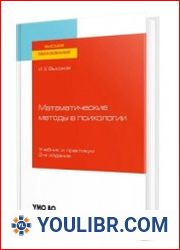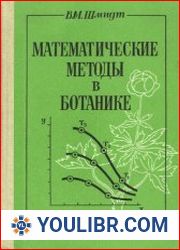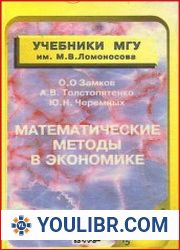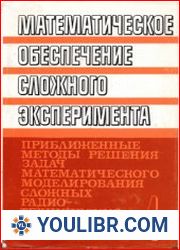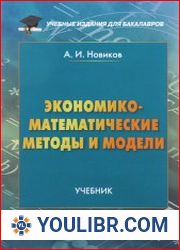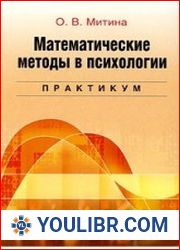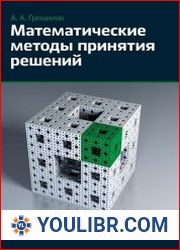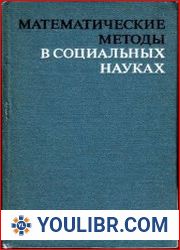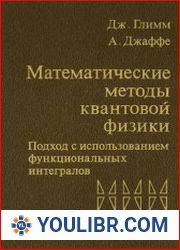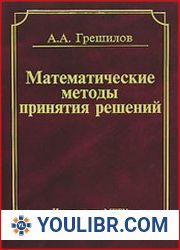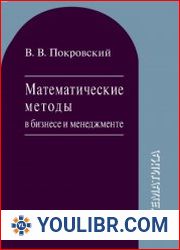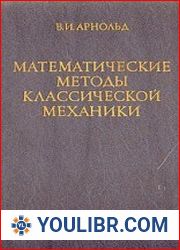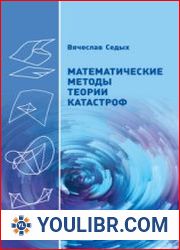
BOOKS - NATURAL SCIENCES - Математические методы интерпретации эксперимента...

Математические методы интерпретации эксперимента
Author: Пытьев Ю.П.
Year: 1989
Format: PDF
File size: 10 MB
Language: RU

Year: 1989
Format: PDF
File size: 10 MB
Language: RU

Book Description: Mathematical Methods of Experiment Interpretation Author: [Name of the Author] 1989 351 Publisher: [Name of the Publisher] The book "Mathematical Methods of Experiment Interpretation" is a comprehensive guide to understanding the technological process of developing modern knowledge and its impact on humanity. The author, [Name of the Author], presents a detailed analysis of the theoretical foundations of the measuring instrument-computer (IVC) complex, which includes methods for analyzing the limiting capabilities of measurement instruments working in conjunction with computers, such as resolution, noise level, and others. The book also covers the theory of optimal synthesis of measurement equipment specifically designed for use with computers, as well as questions of optimal planning of measurements. The book is written in accordance with the program "Mathematical Methods of Experiment Interpretation" taught at the Physical Faculty of Moscow State University. It provides a systematic exposition of mathematical methods for automating experiments, including mathematical modeling and planning, as well as the analysis and interpretation of results, including dialogue with the user. The book begins with an introduction to the concept of the measuring instrument-computer (IVC) complex, which is a fundamental tool for understanding the technological process of developing modern knowledge. The author explains how this complex has evolved over time, from simple mechanical devices to sophisticated computer systems, and how it has influenced the development of human civilization. The book then delves into the specific mathematical methods used in experiment interpretation, including linear and nonlinear programming, optimization, and statistical analysis.
Mathematical Methods of Experiment Interpretation Author: [Name of the Author] 1989 351 Publisher: [Name of the Publisher] Книга «Mathematical Methods of Experiment Interpretation» является всеобъемлющим руководством к пониманию технологического процесса развития современного знания и его влияния на человечество. Автор, [Имя автора], представляет подробный анализ теоретических основ комплекса измерительный прибор-вычислитель (ИВК), включающий методы анализа предельных возможностей измерительных приборов, работающих совместно с ЭВМ, таких как разрешение, уровень шума и другие. Книга также охватывает теорию оптимального синтеза измерительной аппаратуры, специально предназначенной для использования с компьютерами, а также вопросы оптимального планирования измерений. Книга написана в соответствии с программой «Математические методы интерпретации эксперимента», преподаваемой на физическом факультете МГУ. Он обеспечивает систематическое изложение математических методов автоматизации экспериментов, включая математическое моделирование и планирование, а также анализ и интерпретацию результатов, включая диалог с пользователем. Книга начинается с введения в концепцию комплекса измерительный прибор-компьютер (ИВК), который является фундаментальным инструментом для понимания технологического процесса развития современных знаний. Автор объясняет, как этот комплекс развивался с течением времени, от простых механических устройств до сложных компьютерных систем, и как он повлиял на развитие человеческой цивилизации. Затем книга углубляется в конкретные математические методы, используемые в интерпретации экспериментов, включая линейное и нелинейное программирование, оптимизацию и статистический анализ.
Mathematical Methods of Experiment Interpretation Author : [Nom de l'auteur] 1989 351 Publisher : [Nom de l'éditeur] livre Mathematical Methods of Experiment Interpretation est un guide complet pour comprendre le processus de développement technologique de la connaissance moderne et ses effets sur l'humanité. L'auteur, [Nom de l'auteur], présente une analyse détaillée des fondements théoriques du complexe de l'instrument de mesure-calcul (IVC), comprenant des méthodes d'analyse des capacités limites des instruments de mesure fonctionnant en collaboration avec l'UEM, telles que la résolution, le niveau de bruit et d'autres. livre couvre également la théorie de la synthèse optimale de l'équipement de mesure spécialement conçu pour être utilisé avec les ordinateurs, ainsi que les questions de planification optimale des mesures. livre a été écrit conformément au programme « Méthodes mathématiques d'interprétation de l'expérience » enseigné à la faculté de physique de l'Université d'État de Moscou. Il fournit une présentation systématique des méthodes mathématiques d'automatisation des expériences, y compris la modélisation mathématique et la planification, ainsi que l'analyse et l'interprétation des résultats, y compris le dialogue avec l'utilisateur. livre commence par une introduction au concept de l'instrument de mesure-ordinateur (IVC), qui est un outil fondamental pour comprendre le processus technologique du développement des connaissances modernes. L'auteur explique comment ce complexe a évolué au fil du temps, des appareils mécaniques simples aux systèmes informatiques complexes, et comment il a influencé le développement de la civilisation humaine. livre est ensuite approfondi dans les méthodes mathématiques spécifiques utilisées dans l'interprétation des expériences, y compris la programmation linéaire et non linéaire, l'optimisation et l'analyse statistique.
''
Deney Yorumlamanın Matematiksel Yöntemleri Yazar: [Yazarın Adı] 1989 351 Yayıncı: [Yayıncının Adı] Deney Yorumlamanın Matematiksel Yöntemleri, modern bilginin gelişiminin teknolojik sürecini ve insanlık üzerindeki etkisini anlamak için kapsamlı bir kılavuzdur Yazar, [Yazarın adı], ölçüm cihazı-bilgisayar kompleksinin teorik temellerinin ayrıntılı bir analizini sunar. (IVK), çözünürlük, gürültü seviyesi ve diğerleri gibi bilgisayarlarla birlikte çalışan ölçüm cihazlarının sınırlama yeteneklerini analiz etme yöntemlerini içerir. Kitap ayrıca, özellikle bilgisayarlarla kullanılmak üzere tasarlanmış ölçüm ekipmanlarının optimum sentezi teorisinin yanı sıra optimum ölçüm planlaması konularını da kapsamaktadır. Kitap, Moskova Devlet Üniversitesi Fizik Bölümü'nde öğretilen "Deneyin yorumlanmasının matematiksel yöntemleri" programına uygun olarak yazılmıştır. Matematiksel modelleme ve planlama dahil olmak üzere deneyleri otomatikleştirmek için matematiksel yöntemlerin sistematik bir sunumunun yanı sıra, kullanıcıyla diyalog da dahil olmak üzere sonuçların analizi ve yorumlanması sağlar. Kitap, modern bilgiyi geliştirmenin teknolojik sürecini anlamak için temel bir araç olan ölçüm cihazı-bilgisayar kompleksi (IVK) kavramına bir giriş ile başlar. Yazar, bu kompleksin basit mekanik cihazlardan karmaşık bilgisayar sistemlerine kadar zamanla nasıl geliştiğini ve insan uygarlığının gelişimini nasıl etkilediğini açıklıyor. Kitap daha sonra doğrusal ve doğrusal olmayan programlama, optimizasyon ve istatistiksel analiz dahil olmak üzere deneylerin yorumlanmasında kullanılan belirli matematiksel yöntemlere değinmektedir.
الطرق الرياضية للتفسير التجريبي مؤلف: [اسم المؤلف] 1989 351 ناشر: [اسم الناشر] الطرق الرياضية لتفسير التجربة هو دليل شامل لفهم العملية التكنولوجية لتطور المعرفة الحديثة وتأثيرها على الإنسانية يقدم المؤلف، [اسم المؤلف]، تحليلاً مفصلاً للأسس النظرية لمجمع قياس الجهاز والحاسوب (IVK)، بما في ذلك طرق تحليل القدرات المحدودة لأجهزة القياس التي تعمل جنبًا إلى جنب مع أجهزة الكمبيوتر، مثل الدقة ومستوى الضوضاء وغيرها. يغطي الكتاب أيضًا نظرية التوليف الأمثل لمعدات القياس المصممة خصيصًا للاستخدام مع أجهزة الكمبيوتر، بالإضافة إلى قضايا التخطيط الأمثل للقياس. تم كتابة الكتاب وفقًا لبرنامج «الطرق الرياضية لتفسير التجربة»، الذي تم تدريسه في قسم الفيزياء بجامعة موسكو الحكومية. وهو يقدم عرضا منهجيا للطرق الرياضية لأتمتة التجارب، بما في ذلك النمذجة الرياضية والتخطيط، فضلا عن تحليل وتفسير النتائج، بما في ذلك الحوار مع المستخدم. يبدأ الكتاب بمقدمة لمفهوم مجمع أجهزة الكمبيوتر (IVK)، وهو أداة أساسية لفهم العملية التكنولوجية لتطوير المعرفة الحديثة. يشرح المؤلف كيف تطور هذا المركب بمرور الوقت، من الأجهزة الميكانيكية البسيطة إلى أنظمة الكمبيوتر المعقدة، وكيف أثر على تطور الحضارة الإنسانية. ثم يتعمق الكتاب في طرق رياضية محددة تستخدم في تفسير التجارب، بما في ذلك البرمجة الخطية وغير الخطية، والتحسين، والتحليل الإحصائي.








 49
49  1 TON
1 TON

